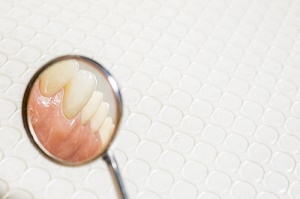 Trephination is a procedure in which the alveolar cortical plate or the apical foramen is surgically perforated in order to release accumulated tissue exudate. During the process, a minor vertical incision is made next to the tooth, and the mucosa is pulled back. This provides the sufficient drainage.
Trephination is a procedure in which the alveolar cortical plate or the apical foramen is surgically perforated in order to release accumulated tissue exudate. During the process, a minor vertical incision is made next to the tooth, and the mucosa is pulled back. This provides the sufficient drainage.
More recently, perforations are made in the medullary bone, which can provide drainage without the need for an incision adjacent to the affected tooth.
When is Trephination Necessary?
Trephination isn’t a common procedure, like a root canal or a crowning, but it useful for several purposes. Here are several situations when trephination might be considered:
Acute Alveolar Abscess
This is when pus collects in the alveolar bone after pulp dies and an infection occurs. Surgical trephination is undertaken when periapical drainage is ineffective or not possible. This reduces the swelling and drains the pus.
Root Pulp Damage
If root pulp is damaged due to trauma or decay, dentin can begin to fill the canal. Trephination is an easy way to gain access to the root canal system so it can be handled. If the dentin has filled the canal completely, however, trephination might not be feasible.
Dental Implant Removal
If a dental implant is fully integrated but beginning to fail, they can be quite difficult to remove. Trephination is often the best option, if not the only one.
What Should I Expect From A Trephination Procedure?
Dental trephination is a fairly invasive procedure, which is one of the reasons it isn’t usually a surgeon’s first option. A trephine bur, a small dental drill, will be used to create the perforation. There are many sizes of trephine burs, and the smallest possible one should be used. During dental implant removal, the drill must be a bit larger than the implant so no damage is caused to the implant body.
Like any oral surgery, you will need to take recovery seriously. You’ll want to use ice immediately afterwards to reduce swelling, and stick to liquid and soft foods for a couple days after. Make sure to take any prescribed antibiotics to completion. Make sure to take extra care of your mouth for the next several months to reduce the risk of complications. Contact your Houston endodontist for more questions.
